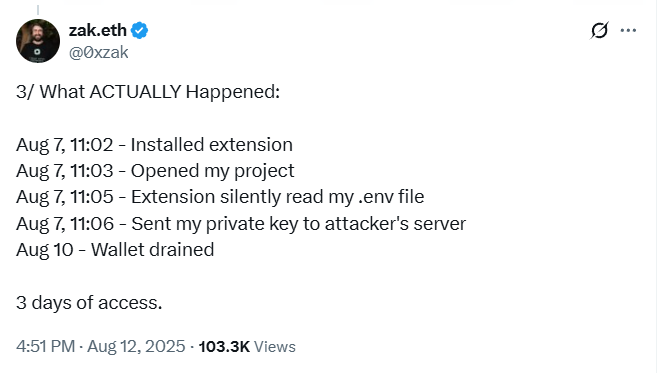Key Notes Developers face five-year sentences despite arguing they followed legal guidance and never held user funds. Privacy features allegedly facilitated criminal transactions including darknet markets and fraud schemes totaling over $237 million. Case follows Trump’s pardon of CZ and echoes Tornado Cash prosecution amid growing debate on crypto privacy tools. US prosecutors are calling for the maximum five-year prison terms for Samourai Wallet developers Keonne Rodriguez and William Lonergan Hill, following their guilty pleas to conspiracy charges for operating an unlicensed money transmitter. Based on the government’s sentencing memorandum…
Tag: Devs
Devs Propose Removing Solana’s Block Limit to Optimize Performance
Web3 infrastructure company Jump Crypto has proposed removing Solana’s fixed compute block limit to strengthen network performance and incentivize validators with suboptimal hardware to upgrade. Jump, which is building a high-performance Firedancer validator client for Solana, is pushing for the SIMD-0370 proposal to be implemented sometime after the Alpenglow upgrade, Solana research company Anza said on Saturday. Alpenglow passed in a near-unanimous vote earlier this month and is set to be deployed on a testnet in December. By removing static block caps, slower validators would skip more complex blocks, leaving…
DOJ Paves Way for Decentralized Crypto With Major Win for Open Source Devs
The DOJ is boosting confidence across the crypto sector by affirming that decentralized software development won’t face prosecution absent intent to aid crime or control user funds. DOJ Fuels Crypto Boom With Major Win for Builders and True Decentralization The U.S. Department of Justice (DOJ) is drawing sharper lines around cryptocurrency enforcement, signaling stronger protections […] Source CryptoX Portal
Who really controls Bitcoin’s price in 2025? Whales, devs or governments, explained
How do whales influence Bitcoin? If anyone comes close to “moving the market,” it’s the whales. These are the investors holding thousands of BTC, often institutions, funds or OG holders from the early days. And in 2025, they’re more active than ever. The number of wallets holding over 1,000 Bitcoin (BTC) has climbed to 1,455 as of May 2025, marking a renewed wave of accumulation. Some of this growth is driven by institutional players: Strategy alone now holds over 580,000 BTC (around 2.76% of total supply), while BlackRock has added…
Core Ethereum devs’ Crypto Wallet Drained by malicious AI extension
A core Ethereum developer said he was hit by a cryptocurrency wallet drainer linked to a rogue code assistant, underscoring how even seasoned builders can be caught by increasingly polished scams. Core Ethereum developer Zak Cole fell victim to a malicious artificial intelligence extension from Cursor AI, which enabled the attacker to access his hot wallet for three days before draining the funds, he said in a Tuesday X post. The developer installed the “contractshark.solidity-lang” that appeared legitimate — with a professional icon, descriptive copy and more than 54,000 downloads…
Samourai Wallet Devs Expected to Plead Guilty to Money Laundering Charges
The co-founders of Samourai Wallet are expected to plead guilty to charges that, via their bitcoin mixing service, they helped hackers and other cyber criminals launder over $100 million in dirty money, according to Tuesday court filings. Both Keonne Rodriguez and William Lonergan Hill initially pleaded not guilty after they were arrested and charged with one count each of conspiracy to commit money laundering and conspiracy to operate an unlicensed money transmitting business last April — charges for which they face a maximum sentence of 25 years in prison. Their trial…
Core introduces first Revenue-Sharing Model for Devs, Stablecoin Issuers
The Core Foundation, the organization behind the Core blockchain, is launching a new revenue-sharing mechanism for the Web3 industry intended to shake up how stablecoin issuers and developers raise funds. Rev+ claims to be the first protocol-level program that directly rewards developers, stablecoin issuers and decentralized autonomous organizations (DAOs) based on their created user value. Once launched, it will allow projects to earn revenue from user-generated gas fees on their blockchain applications. It could provide a sustainable revenue stream for developers, who were previously forced to launch cryptocurrencies to raise…
Fake JD stablecoins, scammers impersonate Solana devs: Asia Express
All JD stablecoins today are scams All services claiming to offer access to JD.com’s stablecoin are fraudulent, the Chinese e-commerce giant said in a statement posted on Weibo, a microblogging platform. JD.com said entities are misleading the public by claiming to have partnered with its Hong Kong subsidiary, JD CoinLink. The company emphasized that it has not issued a stablecoin at this point or formed any such partnerships. Fraudulent campaigns are emerging in parallel, according to multiple WeChat accounts warning against stablecoin scams. Fraudulent campaigns are promising users 5,000 JD.com…
Devs accuse colleagues from Bitcoin Core of being rogue over the plans to remove the spam filter from Bitcoin
The validity of most blocks is confirmed using the Bitcoin Core client. No wonder developers working on Bitcoin Core have some influence on Bitcoin per se. Lately, they have been pushing to remove limits on arbitrary data from blocks (non-monetary data, such as text messages, pictures, and more). Despite the backlash from the Bitcoin community, the Bitcoin Core developers pushed for implementation, arguing with their peers. Citrea is named as the implementation’s stakeholder. What exactly Bitcoin Core is going to change? Bitcoin Core will remove OP_RETURN in the next version,…
Tornado Cash dev’s attorneys say prosecutors hid exculpatory evidence
Attorneys for Tornado Cash developer Roman Storm filed a motion asking the court to reconsider the motion to dismiss the case due to the prosecution withholding exculpatory evidence in the form of communications with the Financial Crimes Enforcement Network (FinCEN) dating back to 2023. According to a May 16 letter from Storm’s attorneys to Judge Katherine Polk Failla, the FinCEN documents show that non-custodial crypto mixers do not fall under the legal definition of a “money transmitting business” and that prosecutors have known this since at least 2023. Despite having…









